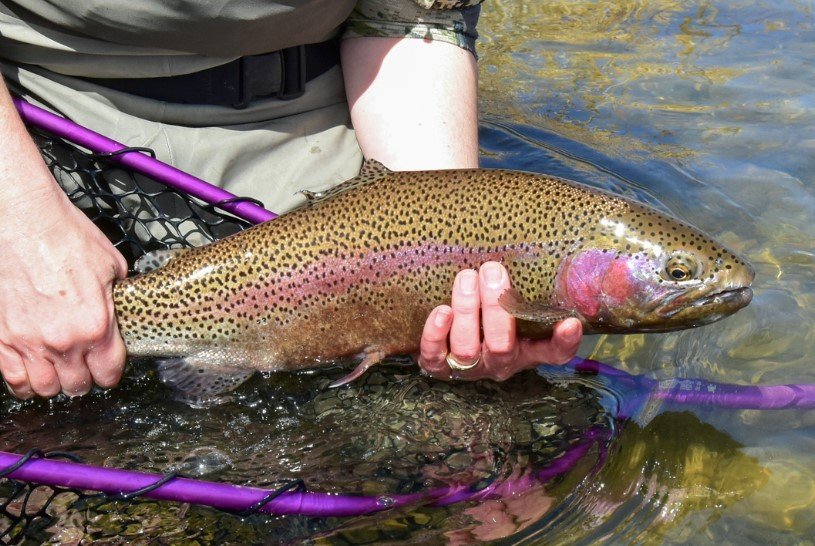A Glennville fisherman hooked a giant near the South Ledge, matching a 2022 record and earning a place in Georgia’s saltwater fishing hall of fame.
Some fish stories are just stories. Others come with scales, measurements, and a signed certificate from the state. That’s what happened earlier this month when a Georgia angler reeled in a 68-pound dolphin fish—tying the state’s all-time saltwater record for the species.
Cade Quick, a resident of Glennville, is the man behind the catch. He wasn’t trying to make history. But sometimes, the ocean has other plans.
The Catch That’ll Be Talked About for Years
It happened on May 5. Clear skies, deep water, and that slight adrenaline buzz any fisherman knows before a strike.
Quick was trolling off Georgia’s coast near the South Ledge, a hotspot known to seasoned offshore anglers. Using a blue and white chugger lure paired with ballyhoo, he hooked into something big—and it wasn’t just the usual mahi mahi bite.
He was running 30-pound monofilament line on a 6-foot Offshore Angler rod. Nothing overly flashy.
Just skill, timing, and a bit of luck.
That’s when it hit. The fish ran hard, pulling line like a freight train. Quick held on.
It took a while. Long enough for the crew to start wondering just how big this thing was.
And then, finally, the flash of color—green, gold, electric blue. Classic mahi mahi. But this one? It looked like it’d swallowed a football team.

A Giant Measured and Certified
Once onboard, the fish stretched 56 inches long. Its girth? An absurd 36.5 inches.
Quick and crew knew it was big—but how big exactly?
After weighing it in, the verdict came in: 68 pounds, 9.28 ounces.
The number rang a bell. Because that exact weight matches Georgia’s existing state record for dolphin fish, set back in 2022.
Now, most folks would assume tying a record is good enough. But in Georgia, the rules are picky. To break a record between 20 and 100 pounds, you’ve got to beat it by at least 8 ounces.
So, it’s not a new record. But it’s every bit as big as the one that came before it.
So What Happens Now?
It’s not just bragging rights on the dock.
Quick will be formally recognized by the Georgia Department of Natural Resources (DNR). He’ll get a certificate signed by the Coastal Resources Division.
And maybe even better? His name and that monster mahi will be featured in the Georgia Hunting and Fishing Regulations Guide. Thousands of anglers will see it. It’ll also be posted on the official state site.
Quick joins a pretty exclusive club.
Georgia’s saltwater records don’t get updated every day. In fact, most of them stand for years.
In other words, if you’re aiming to be the sole name at the top, you’ve got to beat the best—by just enough to make it official.
Still, not bad company to be in.
Mahi Mahi: Fast, Flashy, and Fierce
Dolphin fish, known more popularly as mahi mahi, are a favorite among saltwater sportfishers for a reason. They’re aggressive, they jump, and they grow fast.
No, they’re not related to the mammal dolphin—though the name often causes confusion among non-anglers.
These fish are commonly found in tropical and subtropical waters around floating debris, weed lines, or temperature breaks. And they don’t just look wild—they fight like it too.
Many anglers consider them one of the most fun fish to catch offshore.
And when they get this big? It’s like hooking into a rocket.
Georgia’s Saltwater Records: Who’s Got What?
Here’s a look at a few of Georgia’s other notable saltwater records, just to put things in perspective:
-
Black drum: 90 lbs, 6 oz
-
Cobia: 92 lbs
-
King mackerel: 64 lbs
-
Red snapper: 31 lbs, 8 oz
-
Tarpon: 161 lbs, 8 oz
It’s not every day a mahi makes the top headlines, but when they do, they sure know how to make a splash.
Quick’s name will now stand beside those of some of the state’s most respected anglers.
And while it wasn’t a solo record, tying the biggest ever isn’t exactly a consolation prize. It’s the stuff fishing dreams are made of.
A Reminder: Records Are Meant to Be Chased
Stories like Quick’s inspire every weekend warrior with a rod.
They remind us why we wake up at 4 a.m., why we spend too much money on gear, why we chase tips and tides.
Because maybe, just maybe, the next bite could change everything.
Even if it doesn’t break a record, it might just tie it—and that’s a hell of a story, too.
